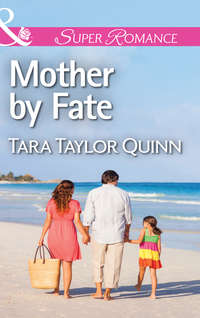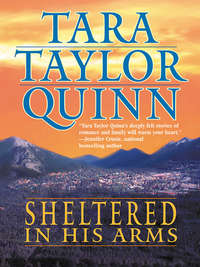
Полная версия
Merry Christmas, Babies
He didn’t want to hear what she had to say.
But he had to hear it.
Maybe as badly as she now needed to quit hiding from the truth.
“This face you find strikingly beautiful…” The words caught in her throat. She’d loved hearing Joe describe her that way, but she needed to bury her head and cry at the same time. It wasn’t her he was admiring.
It wasn’t ever her.
“It’s not me, Joe. It’s a piece of art—the award-winning work of a very talented craftsman.”
Dr. Thomas Fuller hadn’t told her about the public acknowledgment of his work—or the pictures of her face that had been passed around. She’d seen a magazine open to an article in his office one day.
And had rushed to his private bathroom to throw up.
“I don’t understand,” Joe said.
“You know B&R’s start-up money came from a life insurance policy my father purchased before he died.” When it came right down to it, even after all the years of counseling, the new steps she’d vowed to take, she still couldn’t find the words to speak of the night that had irrevocably changed her life forever.
“Yes.” Joe twirled his glass, moving the ice cubes around and around.
“I’ll get you another drink.”
He didn’t argue.
“I was born in Arkansas,” she said as she came back into the room and handed him the full glass. She took her bottle of water to the other end of the sofa. Opened it. Played with the lid. “I was third youngest of four kids.”
“You have siblings?”
She couldn’t blame him for sounding so shocked. Yet the reaction cut her to the core.
And that was why she was speaking up. People couldn’t know what she didn’t tell them.
“A brother and two sisters.”
He threw up a hand. “Why haven’t I ever met them? You know all my brothers and sisters. Hell, you know their kids better than I do.”
She’d spent a lot of holidays with his family.
And she’d hurt him. She hadn’t expected that.
They’re dead, Joe. The words said themselves in her head.
“You’re welcome to meet my family right now if you’d like to take a five-minute drive with me to the cemetery.”
“They’re dead?”
She tried to nod. Meant to nod. She stared at him. Not even blinking.
“All of them?”
Now she blinked, opened her mouth, but it was trembling too badly to wrap around words.
His face stiffened, and paled. “How?”
“A fire. The electrical system in our house shorted.”
JOE’S SKIN WAS CLAMMY. Chilled. He needed to walk. Do something. But he couldn’t move.
Surely the horror he was beginning to picture wasn’t as bad as he was seeing it. Elise was his friend—probably the best friend he’d ever had. She was strong and steady. Nothing bad ever happened to her.
How could he have been so blind? So damned self-interested that he hadn’t known she was hiding?
“They didn’t have time to get out?” he asked now, aghast at the thought of her siblings trapped in a burning home.
“It was the middle of the night.”
The story she’d had to tell him was simple enough. But it contained images he was never going to forget. His beautiful, self-sufficient partner sitting on her sofa, hunched over, consumed by inner visions. And a fear so real she was shaking with it.
“What about your parents?”
“Them, too.”
She’d lost her entire family in one tragic night. He couldn’t even fathom such a thing. Not when his siblings, his parents, were still very much alive and in his life, an intrinsic part of who he was.
He stared at his friend, seeing someone completely different, someone his heart bled for. Someone he was in awe of.
“How old were you?”
She didn’t seem to see him. “Eleven.”
A child. An innocent. Six years before he met her. Six years of growing up…where? With whom?
“Where were you at the time?” How had she been told? Did she see the house?
“There. I was there.”
Joe fought the images. He thought about holding her until it all went away.
And then the end of the story became terrifyingly clear. She’d referred to herself as the award-winning work of a talented craftsman. She wasn’t who he saw.
“You were burned.”
She cringed, hugged her knees. And nodded.
He watched. Waited for her to look up at him. Could he pull her into his arms and make it better? Should he touch her?
Elise’s eyes, when she finally raised her head, revealed the child she’d been. She seemed unsure of his reaction—as though she’d been expecting a negative one.
He swallowed. Fought the urge to run his fingers over her face, through her hair, to kiss away the tears glistening in her lashes. To take her into his lap and rock her.
“How badly?”
“Forty percent.”
Of her body? Trying to imagine the reality made him sick to his stomach. The pain would have been excruciating. Enough to send an adult over the edge, let alone an eleven-year-old child.
“Hair ignites quickly,” she said now, her voice more that of a young girl than the indomitable woman he’d known. “It’s highly flammable.”
Joe had nothing to say. His eyes stung. He took her hand.
“Mine was long.”
ELISE HAD NO IDEA HOW much time had passed. Caught in a warp between past and present, long-ago pain and current fear, she pushed words past the constriction in her throat as best she could. Spoke, for the first time to a nonmedical person, about the night a large part of her died, leaving behind the intelligent automaton who assessed life, made wise decisions, lived up to societal expectations, was kind to others—and had no sense of personal identity whatsoever.
Holding Joe’s hand—another first—she answered his questions as best as she could, telling him about the years of reconstructive surgeries.
“Dr. Fuller was an angel sent from God,” she told him. “I met him at the burn unit when I was first brought in, although I don’t remember that.” She smiled, despite the tears in her eyes. “From what I’ve been told, he took one look at me, heard that my family had all died in the fire, and declared himself my provider and protector. He worked with Social Services and I was placed in the home of his parents’ dearest friends—when I wasn’t in the hospital. I was the culmination of his life’s work, and he performed operations that normally cost exorbitant amounts, at the fee covered by my insurance.”
Elise, withstanding Joe’s perusal with difficulty, could feel her skin tightening where she still had surface sensation. Even after all those years in and out of hospitals, she’d never gotten used to the stares—and the accompanying horror on the faces of the strangers who’d seen her.
“It’s amazing there aren’t any scars.”
“There are.” She closed her eyes, reached with her free hand to trace her hair line. “Here—” her finger moved down the outside of her jawbone to beneath her chin “—to here.”
There were other scars he couldn’t see. That no one saw. Both inside and out. But she was lucky. Thanks to Thomas Fuller, the only external signs left from that hateful night were skillfully hidden, mere thin, silky lines.
“And the people who kept you, they were kind?”
“Very.” If she tried really hard, she could still smell Mary’s peach cobbler baking in the oven. “The Bournes were a childless couple in their seventies. My parents were both estranged from their families because they’d married outside their religions—one was Jewish, one Catholic. So I never knew either set of my grandparents. The time I spent with the Bournes was a gift. Mostly I remember their kindness. They carted me back and forth to appointments, therapies and surgeries, visiting me whenever I was in the hospital.”
“Where are they now?”
“Wally died of a heart attack the year before I started college. Mary followed about six months later. They were both eighty-one.”
“I knew you then.”
“Barely.”
“You never let on you were grieving…”
Joe shook his head. It must be late. He couldn’t let go of Elise’s hand—as though his touch made a difference to her aloneness.
“I’m so incredibly sorry,” he said, hating how trite the words sounded. He’d asked what she’d meant by therapy, and she’d told him about the years of painful treatments she’d endured to regain full use of her injured muscles and limbs. About the nerves that couldn’t be fixed, the parts of her face that would never experience sensation again.
“Thanks.” She didn’t seem to notice that her fingers were still clasped in his. “You’re the first person I’ve ever told about this—apart from counselors.”
He frowned, wishing he’d taken more time to get to know her over the years. He had an idea he’d missed out on much. “Why is that?”
“Look at how you’re looking at me.”
He blinked, pulled away. Let go of her hand. “What?”
“You feel sorry for me.”
“Of course I do! You suffered such a tragedy.”
“I know. And I appreciate the sympathy, don’t get me wrong. But after everything I’d been through, I just wanted to live a normal life. It wasn’t ever going to happen if I took my past with me.”
“Your past is a part of you.”
She was busy trying to leave it behind. “Maybe.”
“It made you strong.”
She didn’t feel strong.
“I’ve dated two wonderful men in the past five years, and both times I could never get enough sense of who I was to be able to give my heart to someone. There’s always this part of me that’s detached.”
She figured that there was no point in holding back now. Joe already knew the worst. And he was safe. A friend and no more.
“I feel fake inside,” she admitted to him. “Just like my face is fake.”
She drew back when he reached to touch her, but he ran his fingers down the side of her cheek anyway. “You don’t feel fake.”
She didn’t feel his fingers, either.
And then, as his hand continued over her face, away from the grafted skin, she did.
“I lost everything, Joe. Mementos, photos, tokens. The memories fade and there’s no one left who shared them to remind me. I look in the mirror and I’m not me. There is nothing there that speaks of my heritage.”
He started to speak but she held up a hand. She had to finish what she’d started.
“Don’t get me wrong. I’m not feeling sorry for myself here,” she continued. “Yes, horrible things happened, but I was also incredibly lucky—in many ways—and I’m very grateful for that. Truthfully, I think more about the good than the bad.”
He nodded, sipped his watered-down drink, then held the glass in both hands in his lap.
“I’m a survivor, Joe. I’m only telling you about all this so that you can understand.”
And because, as of today, there was no way her choice wasn’t going to affect his life, as well, at least peripherally.
“I’m thirty-two years old. I’ve got my body back, my career and financial security are set, but my sense of self, of being grounded, which I lost in that fire, is still missing. I have no significant other. I’ve been finding my solutions on my own for a long time.”
“And so you decided to have a baby, start a new family, on your own.”
The knot between her shoulder blades loosened and Elise almost smiled. “Yes.” He got it.
“Okay.” He drained his drink, sat forward. “You have my full support.”
Elise was tempted to stand, to leave it at that and let him leave, but knew she couldn’t. She’d opened the door to truth between them. She was no longer hiding.
“There’s more, Joe.”
Lips pursed, he nodded. “I kind of thought so.”
“I had an ultrasound today.”
He peered at her through narrowed eyes. “There’s something wrong with the baby?”
If she didn’t know better, she’d think he was personally invested in her answer. But this was Joe. He’d chosen divorce over creating a baby with the woman he adored.
“Not as far as they can tell,” she answered slowly.
“So what’s the problem?”
“There are four of them.”
JOE DROVE HOME. His older brother Kenny was waiting on the lighted basketball court behind Joe’s home, just as Joe had requested from his cell phone immediately after leaving Elise.
Kenny, like Joe, was unmarried, unencumbered with a houseful of needs that couldn’t possibly be met. He was also unemployed—for the fourth time in almost as many years.
By choice.
His brother got bored easily.
“What’s up?” Kenny asked as Joe joined him five minutes later, having exchanged his shirt and tie for shorts, a T-shirt and three-hundred-dollar tennis shoes.
“Just needed a game,” Joe grunted as he sank a three-pointer.
Kenny swiveled, butted up against Joe as he dribbled and went up for a successful slam dunk. “It’s after nine o’clock. You work in the morning.”
“You don’t, so what’s it to you?” Joe rebounded, took the ball back and lined up another three.
With a quick jump, Kenny stole the ball from him.
“As a matter of fact, I do,” Kenny said, turning to grin at Joe as he bounced the ball between his legs and caught it behind him. “I sold Wambo.”
One of Kenny’s many animated video characters. He named a well-known, international video game producer as the buyer.
“I’ve got some changes to make to him—he needs to be a little taller and more agile. And they want a woman to go with him.”
Joe stood while Kenny made the next shot. His brother was up on him four to three. “Congratulations!” he said, slapping Kenny on the back.
Kenny got his own rebound and shot the ball at Joe’s chest.
“Can’t let you be the richest guy in the family,” he joked, but Joe could tell that his big brother was proud of Joe’s accomplishments, too. Mostly Joe was relieved to see that Kenny was finally finding some success with what he most loved to do. What he was good at.
He deserved it.
Joe sank another three. And was in his brother’s face, up and down the half court, pounding the pavement, the backboard, anything he came in contact with as he trounced one of Michigan State’s most celebrated basketball stars.
Kenny asked him again what was wrong.
Joe insisted nothing was wrong. And he showered and went to bed telling himself the same thing.
Elise was a business partner who’d survived incredible odds.
Her private life was not and never had been any concern of his.
Sleep was elusive.
ELEVEN O’CLOCK and Elise still couldn’t quiet her mind at all. She’d taken a hot bath. Done breathing exercises. She’d watched a sitcom. Tried to read—and to coax her independent housemates out from under the bed.
And then she picked up the phone. It was an hour earlier in Arkansas. He’d be home by now after his evening jog. Turning seventy hadn’t slowed him down a bit.
“Elise! Good to hear from you.”
Standing in the middle of her bedroom, Elise studied herself in the antique free-standing, floor-length mirror. There wasn’t a single visible scar on her face. And her body was almost as beautiful.
“I’m sorry to bother you so late.”
“You are never a bother, my dear. But I hear something in your voice that concerns me. Need to talk?”
He’d know it was why she’d called. Why, after all the years since being his patient, she still called. At least once a month. She’d grown up with Thomas, confided her deepest secrets to him, trusted his advice.
After the death of her family, he’d become her protector.
There’d been a time of despair—of separation—when he’d fallen from his pedestal. He’d published photos of her at the various stages of her plastic surgery. She’d long since forgiven him, though.
Now he was just a man. And a very dear friend, with faults and failings like everyone else.
And he’d created the woman who now stood on expensive carpet in a spacious bedroom in a beautiful old home in Lowell, Michigan.
“I’m pregnant, Thomas.”
“Congratulations!” her ex-doctor said with real joy. “So it took the first time!”
“It more than took.” She turned away from her image as fear twisted her features. “I’m carrying quadruplets.”
He swore—something he rarely did. And that scared her anew.
“You’re worried,” she said.
“No,” he answered immediately, his voice reassuring even halfway across the nation. “Just wishing that something would come easy for you.”
“Yeah, me, too.”
Silence. He had doubts. She’d known he would. Feared he would.
Sinking to the handmade floral quilt on her king-size bed, she asked, “What am I going to do, Thomas?”
“Follow doctor’s orders explicitly and have healthy babies.”
The answer surprised her.
“And after that?”
“You’ll raise them.”
“How?” She only had two arms.
“You lived through six years of agonizing pain and debilitation, Elise, beating all the odds over and over again. And you did most of it with a smile on your face. What’s raising four children after that?”
Four children was one thing. Four children at once was another.
“They talked about selective reduction.”
“It’s an option.”
“What do you think?”
“Removing one or two fetuses is common enough practice in quadruplet pregnancies. But it also poses risks to the remaining fetus or fetuses.”
“Do you think I should do it?”
“Do you want to?”
No. Not at all. She could hardly bear the thought. But for the sake of doing the right thing, she was forcing herself to consider the option.
“You can do this,” he said. “You can go through this pregnancy, have these babies, do a good job raising them.”
“I’m scared to death.”
“It’s not the first time, is it?”
He knew it wasn’t.
“Hey.” His voice came again, softer now. “Have you forgotten the one rule of life?”
His wife, Elizabeth, had taught it to her. And to emphasize the message, after every single procedure Elise had undergone during the six years of her recovery, there’d been a gift waiting for her when she awoke.
“To always look for the gift in every situation,” she repeated now.
“You wanted a family. You’re thirty-two. By the time you’re thirty-three, you’ll have a full house.”
With a trembling chin, Elise faced the mirror again. “Mama raised four babies. So can I.”
“That’s my girl.”
CHAPTER THREE
JOE DIDN’T GET ANGRY OFTEN.
Anger brought chaos, for which Joe had a deep-seated aversion.
He avoided glances from everyone in the payroll department as he strode the short distance from his office on one end of the fifteenth-floor condominium suite to Elise’s office on the other.
It had been two weeks and a day since he’d met the real Elise Richardson—or at least a more complete Elise.
Two weeks and a day since she’d told him she was carrying four babies at once.
Neither of them had mentioned the conversation since.
He could think of little else.
She was on the phone when he arrived. The second she disconnected he announced, “I just heard you climbed fifteen flights of stairs with a bag of groceries.”
He could only see the top half of her sleeveless white summer dress, and she wasn’t sweating a bit.
“I had salad dressing and meat for the chicken Caesar salad we’re having for lunch. I couldn’t leave them in my car. It’s summer outside, in case you haven’t noticed.”
“Don’t humor me, Elise. I’m not out of line here.”
“You’re upset over nothing.” She didn’t have to flick her fingers through that short dark hair to make her opinion perfectly clear.
“You climbed fifteen flights of stairs!”
“The elevator was out.”
“You’re carrying four babies! You should have called someone.”
She glanced to the hall outside the big glass windows on either side of her door. “The bag wasn’t heavy and exercise is good.” Her voice had lost much of its force.
“You still haven’t told anyone.”
She shook her head.
“When are you planning to do it?”
“As soon as the timing’s right. At the moment we’re hiring a new pay tech to take care of the payroll-only clients. And something’s up with one of our couriers—checks have been misdelivered twice.”
“Lunch today would be good timing,” Joe said, refusing to be distracted by business when what he really wanted was to never again speak of anything else with his partner. “Putting yourself—and your babies—in danger is ludicrous.”
“There was no danger, Joe! I’m not stupid. I went slowly, took breaks when I needed to. I just saw my doctor this morning and she says the more I exercise the better we’re all going to be.”
He closed her door, then stood in front of her desk like some kind of drill sergeant. Unusual for him.
“On to something that matters,” she said, eyeing him with warning. “First International is threatening to raise our group rate again. I’ve got an appointment on Monday with Great State.”
Both substantial and reputable insurance companies, and nothing to do with the stairs she’d climbed—or the reason he cared that she had. “I suspect their quotes will be similar.”
“Our value comes in offering insurance to employees of independent companies at a rate their companies can’t afford to offer. If our rates change too much, we lose that value.”
“We offer a great package,” he said. “Payroll, workers’ comp, tax compliance—and group insurance. And if our rates raise, so will everyone else’s. Unless they drop the lower rate structure for larger groups—which would put them out of business—we’ll still have the advantage.”
“I have an idea that will give us more of an advantage.”
He recognized the glint in her eye and sat in a visitor chair. “I’m listening.”
“What if we bundle a package of vendors? You know, a workers’ comp specialist, a strategic planning counselor, a tax consultant, a retirement counselor, psychiatric counselor, a corporate lawyer and maybe some kind of team facilitator—all things that are offered to employees of larger companies.”
“Benefits that bring higher levels of success,” he added, already hearing the presentation in his mind as he imagined himself selling the idea.
“Exactly.” Elise folded her hands on her desk, watching him. “The vendors would all bill us and we’d bill the companies, based on how many options they choose.”
“Individual services billed at a package-deal rate.”
“Correct.”
He loved it. Would have thought of it himself if he didn’t have her there to do that kind of thinking for him. Or not.
The tension that had become almost a constant companion to Joe these past couple of weeks returned in force. He needed Elise. Couldn’t afford to lose her. B&R couldn’t afford to lose her.
But how could four newborn babies possibly fit into the mix? Or four toddlers, for that matter?
“SO WHAT ELSE DID the doctor say?”
Elise stared at Joe, at the closed door to her office, then the hallway. They were working. In ten years, they’d never talked about personal stuff during working hours. At least not her personal stuff. She wasn’t forthcoming. He never asked. This was the second time in an hour.
She didn’t want that to change. Maybe she’d made a horrible mistake—or many of them. Confiding in Joe about her past. And her present. Visiting the fertility clinic. Thinking she needed more out of life. Thinking, period.
“You know doctors,” she conceded with an answer of sorts when it became clear that he’d sit there through the noon hour if she didn’t ante up. “They’re always worried about malpractice suits.”
Sitting forward, Joe held her gaze, not bothering to temper his frown with even a hint of a smile. “What did she say?”
Angela Parks walked by—probably on her way to the water fountain, judging by the big blue thermal cup in her hand. She filled it at least three times a day. Elise was a little concerned that the twenty-five-year-old pay tech might be diabetic.









